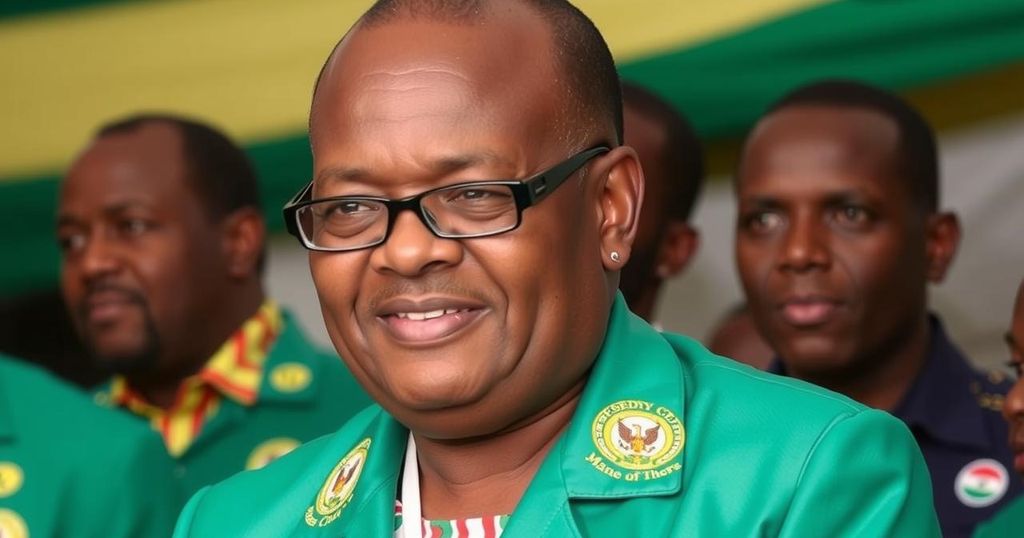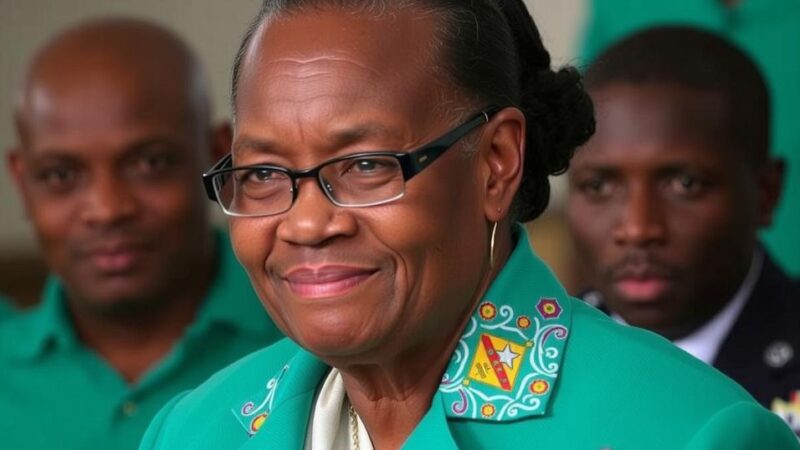Vice President Mahamudu Bawumia of Ghana conceded defeat in the presidential election to former President John Mahama, amid widespread voter frustration over economic issues. Mahama secured approximately 56.3% of the vote, leading the NDC to victory in both the presidential and parliamentary elections. This change reflects a desire for reform in response to economic turmoil, including high inflation and a debt crisis.
In a significant political shift, Vice President Mahamudu Bawumia, the candidate from Ghana’s ruling New Patriotic Party (NPP), admitted defeat in the recent presidential election held on Saturday. The election results reflect widespread dissatisfaction among voters, mainly stemming from the country’s dire economic situation, including exorbitant inflation and a historic debt default. Bawumia’s concession marked the end of two consecutive terms for the NPP under President Nana Akufo-Addo, following an extended period characterized by economic turmoil.
During a press conference, Bawumia expressed respect for the electorate’s decision, stating, “The people of Ghana have spoken, the people have voted for change at this time and we respect it with all humility.” He confirmed that he has reached out to his opponent, former President John Mahama of the National Democratic Congress (NDC), to extend his congratulations.
As Mahama’s supporters celebrated outside the NDC headquarters in Accra, reports confirmed that Mahama had emerged victorious with a notable margin, claiming about 56.3% of the votes compared to Bawumia’s 41.3%. This electoral outcome underscores the profound desire among Ghanaian citizens for change, particularly in light of the challenging economic landscape that has plagued the nation leading up to the elections. The NPP’s internal vote tally corroborated Mahama’s decisive win, alongside the NDC’s success in parliamentary elections.
Ghana has been grappling with serious economic issues, including currency devaluation and a recent financial rescue from the International Monetary Fund amounting to $3 billion. Although inflation rates have shown signs of improvement, the economic circumstances remain an acute concern for the populace, culminating in a pivotal electoral challenge for the ruling party. Despite Bawumia’s aspirations to continue the NPP’s governance under the banner “Break the 8,” he was unable to detach himself from the adverse perceptions of President Akufo-Addo’s economic performance.
With a history of peaceful democratic transitions since 1992, Ghana’s political landscape is defined by a competitive rivalry between the NPP and NDC. Despite setbacks, Mahama’s previous tenure from 2012 to 2017 evidently resonated with voters, ultimately facilitating his return in this recent electoral contest.
This article reflects on Ghana’s recent presidential election wherein Vice President Mahamudu Bawumia conceded defeat to former President John Mahama, representing the National Democratic Congress (NDC). Economic challenges have heavily influenced the election outcome, leading voters to seek a shift in governance after the New Patriotic Party (NPP) ruled for two consecutive terms. The context of economic distress, high inflation, and a debt crisis underscores the key factors behind the electorate’s decision to elect Mahama, demonstrating a desire for immediate change.
In conclusion, the recent presidential election in Ghana marks a turning point in the nation’s political landscape, highlighting the electorate’s push for economic reform and change after years under NPP leadership. Bawumia’s acknowledgment of defeat underscores the significant impact that economic frustrations have on governance. As former President Mahama assumes his new role, the focus will likely shift towards addressing the pressing economic challenges facing Ghana.
Original Source: www.voanews.com







